What Is a FACIS Level 1 Background Check?
A FACIS level 1 background check is a name search for disciplinary action against a person, sanctions, debarments and other exclusions while working in the healthcare field.
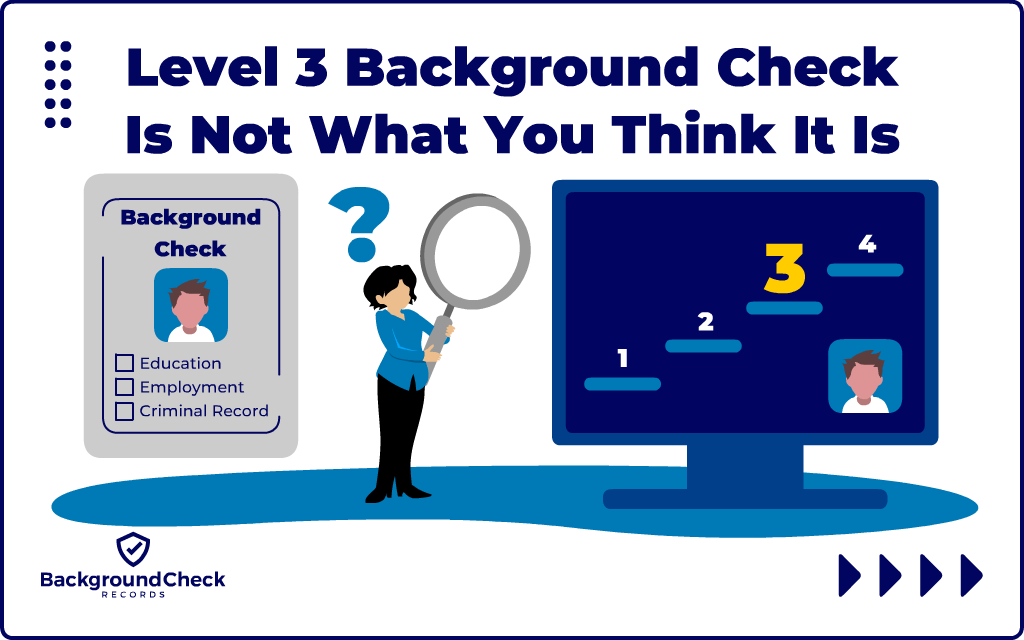
Table of Contents
Employers frequently conduct level 3 background check, but they’re often misunderstood, as people tend to confuse them with level 2 or level 4 check. However, they’re used for different reasons, and the thoroughness of each varies.
From the most basic background checks, to screenings that check every record imaginable, see all levels of background checks in detail or run a background on anyone using the form here. In addition, the information below allows you to get familiar with the various levels to help determine which one is best for any given application or objective.
Considered the top choice among pre-employment screenings, Level 3 background screening are widely used and include components from both level 1 and 2 checks, making it important to understand its details.
Simply put, a level 3 background screening covers all the things an employer would like to know so they can make an informed decision in order to bring a new hire onboard. In addition, level 3 reports can also be conducted after someone is hired or receives licensure in a field that requires it.
Ultimately, each company or agency will set its background check policy based on needs and in compliance with state and federal laws.
Typically associated with fingerprinting and security clearance, a level 3 background check usually just involves verifying education, employment history, criminal records, and references.
When a level 3 check is done for healthcare professionals it includes a FACIS report as well.
A level 3 screening means the employer or a third-party site contracted by a business or agency has verified the education listed on a person’s resume or application is correct. This includes dates and any degrees, diplomas, or certificates awarded.
When someone submits a resume or completes an application, they list all their former places of employment. A level 3 check makes sure the information listed on the resume or application is correct and complete. A level 3 check can show employment that someone has either intentionally or inadvertently left off.
When most people think of employment background checks, a criminal history check is what usually comes to mind. A level 3 background report will include a complete criminal history (in compliance with state and federal laws) of the applicant or employee.
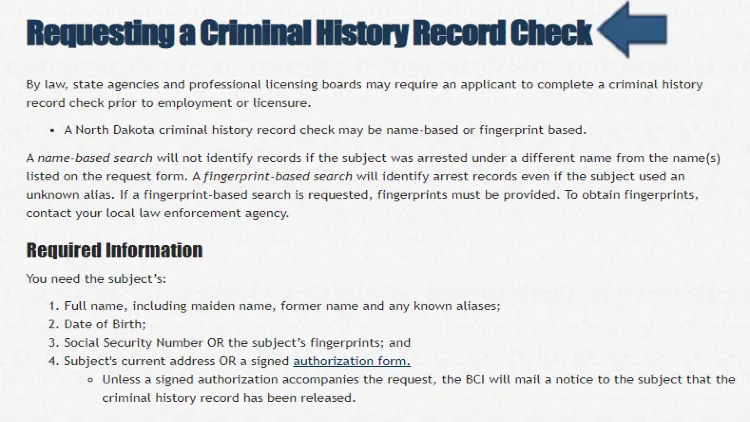
Information obtained on criminal history can only be used when the information will directly impact the person’s ability to perform a job. For example, someone with a criminal conviction for child abuse would be excluded from working in a daycare or school.
The Equal Employment Opportunity Commission provides guidance to agencies and organizations on how to use information gathered from a level 3 background report regarding criminal history. The Fair Credit and Reporting Act also require the subject’s consent before a level 3 report is initiated.
The fourth most common component of a level 3 screening is the reference check. This involves reaching out to those references a person has listed on a resume or application or reaching out to former employers for a reference.
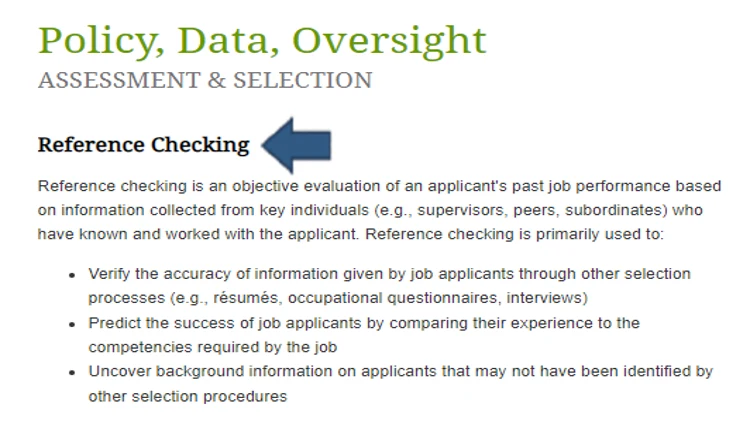
Some states have laws that restrict what former employers can disclose on a reference check; however, when the reference is an associate or someone other than a previous employer, they are not restricted by the same laws as former employers.
As stated earlier, healthcare workers can also be subjected to a FACIS level 3 check to make sure they are not on a federal or state exclusion list.
The healthcare industry has a specific type of Level 3 background screening known as FACIS. FACIS stands for Fraud Abuse Control Information System, and it is designed to give a comprehensive report on an individual who has worked in the healthcare field and been sanctioned at some point in time.
Provided as an exclusion screening tool, FACIS alerts employers if someone has been placed on a federal or state sanctioning list for fraud, waste, or abuse. These alerts can be part of a continuous level 3 check.
The FACIS database is updated daily with information from numerous state and federal sources, including the Federal Bureau of Inestigation (FBI), TriCare, the Office of Inspector General (OIG), and state health and human services divisions.1
Knowing which individuals have been placed on an exclusion list helps prevent danger to others and the organization, and FACIS can help alert agencies of these individuals or businesses that are on the list. FACIS gets information for the database from various government agencies on the federal and state level.
Individuals who work in healthcare undergo a specific type of level 3 background screening that is specific to that industry. Regarding federal or state healthcare sanctions, a level 3 background screening is not what you think it is because these databases are usually not screened in a Level 1 or Level 2 report.
Federal and state governments maintain lists of those individuals who work in the healthcare field and have been sanctioned or excluded due to violations such as fraud, waste, and abuse to help protect future employers from hiring those who may present a danger to patients, public or the organizations.
The table below outlines the federal exclusion lists (with the link) and a brief description of what it provides.
| Federal Agency | Brief Description of Database |
| Centers for Medicare and Medicaid Services (CMS) | Provider sanctions and reinstatement files, updated monthly, opt-out database, and those revoked from Medicaid |
| National Plan and Provider Enumeration System | Lists the provider’s unique 10-digit identifier used to designate the provider across all systems. |
| Food and Drug Administration (FDA) Food and Medication Debarment Lists | Results of disqualification proceedings against clinical investigators regarding drug product applications and food imports |
| Medicare Exclusion Database | List of provides excluded from Medicare |
| Office of Foreign Asset Control (OFAC), Alternate Names List, SDN List, SDN Alternate List | Sanction database of individuals and businesses on the Specially Designated Nationals (SDN) connected to targeted countries. |
| United States Government General Services Administration Award Management System | List of those excluded from federal government contracts. |
| United States Government Health and Human Services Office of Inspector General (OIG) | Individuals are excluded from Medicaid, Medicare, and other federal healthcare plans/programs. |
| United States International Trade Administration | This agency provides a consolidated list for screening. |
Each state maintains an exclusion list as well. Individuals placed on this database may have incidences of Medicaid violations (such as fraudulent charging for services not rendered) or disciplinary actions for creating harm to patients. The table below provides a link to each state exclusion list or information about the process.
*Exclusion List is for the state gaming board which places individuals that are a threat to public safety or the gaming industry.
**State does not maintain an exclusion list but federal lists can show excluded providers or individuals in this particular state entered into the federal database.
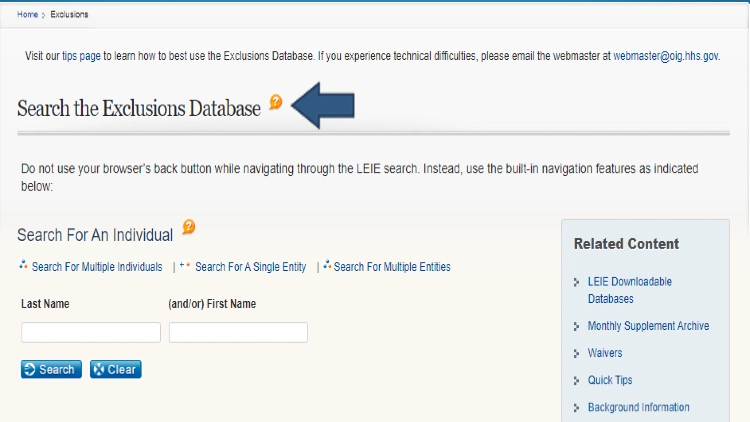
Each agency or state sets its own schedule to update these lists, that is why a central search like FACIS helps when doing a level 3 background report for healthcare providers. This is just one of the items that can show up on a Level 3 background screening.
Expunged records are those that a judge has ordered to be destroyed or sealed and removed from public view, so it is unlikely one will appear on a level 3 report.
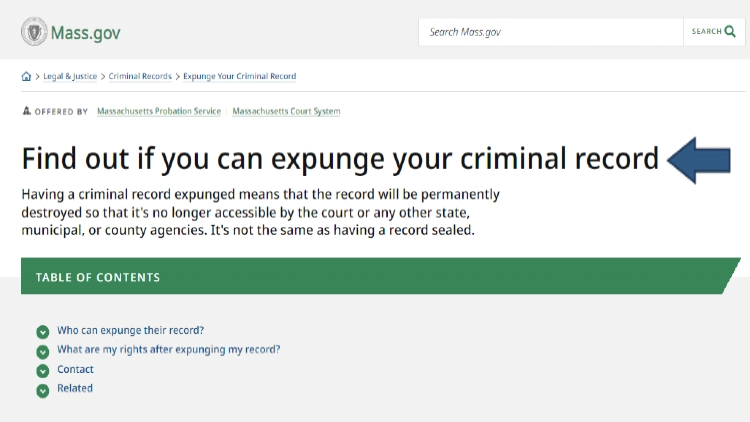
Each state has its own laws regarding expunging records and what happens when these records are sealed. Some states, such as New Jersey, have online portals where individuals can apply for record expungement.
Expunging criminal records can remove disqualifiers that may otherwise appear on a level 3 background report but they may occasionally show up on background checks because of delays in destroying the record, or the record is in multiple databases and not all are updated on the same schedule.
Background checks vary in what they show depending on the information requested, the needs of the person doing the search, and the level check performed. Not all background checks are created equal and not everyone needs a deep-dive screening into a potential candidate’s background.
Generally, there are four different background check levels: 1, 2, 3, and 4, with each one providing a varying amount of information.
The most basic of each background check, a level 1 screening is a name-based search in one geographic location such as a city, county or state. Multiple hits can come back on this type of search, especially for common names. A level 1 check is most likely used in personal background checks or for some unskilled labor positions.
A level 2 check is what most people commonly mistake for a level 3 report. A level 2 check includes a name and social security search along with a fingerprint-based search of national and state criminal history.
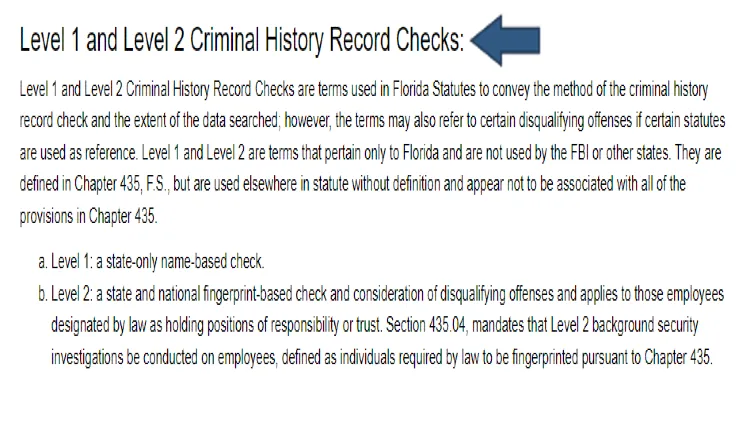
This type of screening is sometimes done for positions that involve increased public trust or responsibility. Level 2 checks are focused primarily on disqualifying crimes that would prevent someone from effectively doing a job. For example, an individual with an arson conviction would be disqualified from working in a fire department.
A level 3 background screening is considered the optimal type of screening for potential employees who need to be stringent. This check looks at education, employment, criminal history, and references as part of the screening process.
In addition to these areas, it can also include pre-employment substance abuse screenings or medical examinations for jobs that are physically demanding such as law enforcement or heavy equipment operators.
Level 4 background checks, also known as executive background checks or executive level screenings, go beyond the traditional review of criminal history and employment records when assessing candidates for employment.
When comparing background check levels, each has its own advantages and disadvantages. It’s simple to see all levels and decide which is best for the company or agency.
Level 1 background checks typically include employment verification and local criminal background check (one jurisdiction). This check is common for personal background checks or some unskilled labor positions (depending on where the position is located). Since it is a name-based check, reports can return multiple hits, especially for common names.
Level 2 background checks include the information typically found in a level 1 check; however, it focuses on national databases for criminal history (which can include criminal charges) and is designed to check for disqualifying offenses.
For example, someone convicted of child abuse or assault on a child would be disqualified from working in a daycare or school. A level 2 check usually includes fingerprinting. Employment and education verification can be part of a level 2 check.
level 3 checks include the same information as level 1 and level 2 with the added step of verifying references in addition to criminal history, employment, and education verification.
Level 3 FACIS checks search for disqualifying adverse action in the healthcare field as well. Level 3 screenings are the most common type of employment screening (both pre-employment and continuous). level 3 background reports can also include drug testing.
Level 4 background checks include all the components of the previous three levels; however, a much deeper dive into the person’s background is taken. Level 4 checks not only look at the things mentioned above but can also include bankruptcies and check a person’s social media footprint.
Each check can have a different lookback period depending on why it is being conducted.
The usual lookback period for a level 3 background screening is seven years but because the FCRA limits how far back companies can consider adverse credit history, many companies apply this same standard to criminal history; however, the FCRA doesn’t specifically address criminal history.
In addition, state laws can limit the lookback period on level 3 reports regarding criminal history. Some states limit it to seven years in conjunction with the FCRA credit history standard while other states set a 10-year limit. Still, others have no limit on how far back someone can search criminal history.
For example, Texas has a seven-year lookback period for criminal offenses in line with the limitations on credit history checks.2 Level 3 background screenings regarding criminal history are limited by this restriction.
Employment and education verification also have no set time limits since it is important to see someone’s employment history to gauge skills and abilities, and education may be a key component of the position applied for.
Ultimately, a level 3 background screening goes back 7-10 years and is designed to make sure the candidate is right for the position and will not be a liability to the agency.
A level 3 employment screening is not only used to verify information provided on a resume or application, it is also designed to find out if someone has any disqualifying offenses on their background.
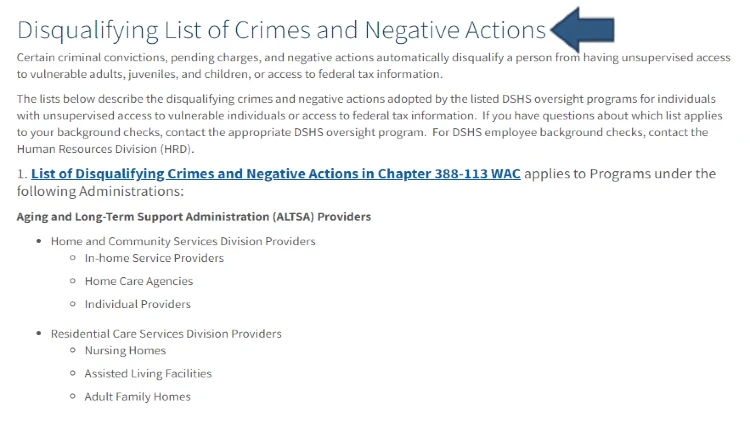
There are many things that could appear on a level 3 screening that would lead a company to not hire someone. Below are a few of the disqualifying offenses that may appear.
If the candidate’s employment history has a lot of gaps (or one long gap), or it appears the person has held many positions in a short amount of time, this can be a red flag that the candidate is unreliable. Gaps in employment could also indicate periods of incarceration where the individual was unable to work.
Criminal convictions are not necessarily disqualifiers, but there are circumstances where a criminal record can prevent someone from being hired. For example, when a person is convicted of embezzlement, they would be disqualified from a position in a bank or financial institution. Criminal history lookback periods can be limited by state laws.
The use of criminal history when making hiring decisions is also limited to whether or not the conviction directly impacts a person’s ability to perform a job. A criminal history cannot be used to discriminate against someone. The EEOC provides guidance and oversight on Title VII of the Civil Rights Act dictating how criminal records can be used in hiring decisions.3
If someone receives poor references or recommendations, this can be a disqualifier on a level 3 employment screening.
Some states have laws that limit what information can be disclosed when reaching out to a prior employer for a reference or recommendation.
Level 3 FACIS checks will show abuse, fraud, and waste in the healthcare industry. A FACIS hit can be a disqualifying offense. Some federal and state agencies maintain databases of those subject to adverse action, and this action can be used to disqualify someone from a healthcare position.
When conducting employment verification in a level 3 check, if there are inconsistencies between the resume and the information returned it can be a disqualifier.
This list is not exhaustive, but these are the most common disqualifying offenses flagged on a level 3 background screening. A level 3 report can take time depending on how much information is requested and from where.
Because there are many components to a level 3 report, it can take some time to get all the information compiled in a report. Many think of a background check as just a few phone calls or clicks on a keyboard, but a level 3 background screening is much more than that.
The criminal history check typically takes three days to a week to complete unless it’s an expedited FBI background check, particularly if fingerprinting is involved. Fingerprints are submitted to the FBI which checks them with prints on file using its Next Generation Identification System and can take a few days to complete.4
Employment verification on a level 3 background screening can also take a few days because it involves calling Human Resources at each agency or place of employment to verify the individual did work there and confirm the dates of employment.
Education verification typically takes three business days to complete in a level 3 background screening.
Another aspect of a level 3 background screening is the pre-employment drug screen. The results from these tests can be instant to a few days depending on the nature of the tests and the substances being screened for.
Finally, reference checks can be the biggest delay and may take several days in a level 3 background screening. This component depends on whether or not the reference can be reached immediately, if they are being called on the phone, or if they are being directed to a reference link in an email or text.
A level 3 background screening doesn’t have to be intimidating. There are things individuals can do to mitigate what may or may not show up on the screening report.
When a level 3 background screening is being completed, there are things the individual can do to ensure they will pass. With more agencies turning to Level 3 reports, it’s important to be proactive to lessen the potential impact.
Anyone can run a personal background check on themselves at any time by using the form above. This check can be done using a third-party search site or searching government databases individually. Check your driving record and credit history with a personal background check as well.
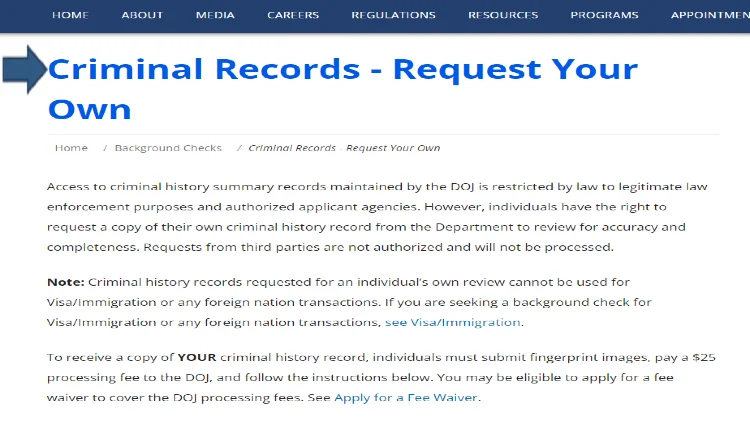
Be aware, that the information in a personal background check may or may not be current depending on which databases are searched by the search site.
If someone has a criminal history, or there was a huge gap in employment, honesty about the circumstances is the best route to take. Since criminal history or lack of employment history cannot be used to take adverse action against a candidate, being upfront about the situation can go a long way toward mitigating any damage it may cause.
Know the laws in your state and federal statutes about what can and cannot be considered on your level 3 background screening. Having knowledge of the laws protecting you can help if discriminatory action is taken.
This includes becoming familiar with federal and state “ban the box” laws to make sure employers are in compliance with these statutes. “Ban the box” laws can protect applicants from unfair hiring practices and discriminatory background checks.
If the position requires a pre-employment drug screening, know what substances are being screened and the laws surrounding these as well. For example, recreational marijuana is legal in 19 states, but it is still prohibited at the federal level. Therefore, if someone is applying for a federal job in one of those 19 states, recreational use of marijuana could be a disqualifier.5
A level 3 check may sound intimidating, but it is actually the most common screening used by agencies and organizations. A level 3 background check, being the industry standard and one that most people have encountered, isn’t quite what you might expect.
A FACIS level 1 background check is a name search for disciplinary action against a person, sanctions, debarments and other exclusions while working in the healthcare field.
A level 3 background screening for an in-home healthcare company would include criminal history, education and employment verification, reference checks and a FACIS check for abuse or fraud while working in the healthcare field.
The National Plan Provider Enumeration System (NPPES) maintains a database with the unique 10-digit identifier for each person working in the healthcare field. This number is used to verify individuals when they are debarred, sanctioned or otherwise excluded from working in the healthcare field and a FACIS check is performed.
1 Willard, J. (2020, April 2). What is a Level 3 Background Check. Verisys. Retrieved August 11, 2022, from <https://verisys.com/understanding-a-facis-level-3-background-check/>
2 Reference Checks in Texas. (n.d.). References and Background Checks. Retrieved August 11, 2022, from <https://www.twc.texas.gov/>
3 Enforcement Guidance on the Consideration of Arrest and Conviction Records in Employment Decisions under Title VII of the Civil Rights Act. (2012, April 25). Equal Employment Opportunity Commission. Retrieved August 11, 2022, from <https://www.eeoc.gov/laws/guidance/enforcement-guidance-consideration-arrest-and-conviction-records-employment-decisions>
4 Next Generation Identification (NGI) — LE. (n.d.). Law Enforcement. Retrieved August 11, 2022, from <https://le.fbi.gov/science-and-lab-resources/biometrics-and-fingerprints/biometrics/next-generation-identification-ngi>
5 Federal Laws and Policies Prohibiting Marijuana Use | CHCOC. (2015, May 26). CHCO Council. Retrieved August 11, 2022, from <https://chcoc.gov/content/federal-laws-and-policies-prohibiting-marijuana-use>
We use cookies to ensure that we give you the best experience on our website. If you continue to use this site we will assume that you are happy with it.